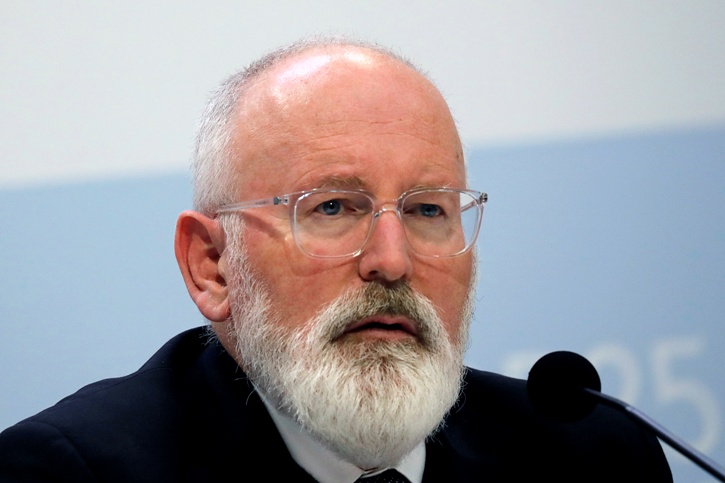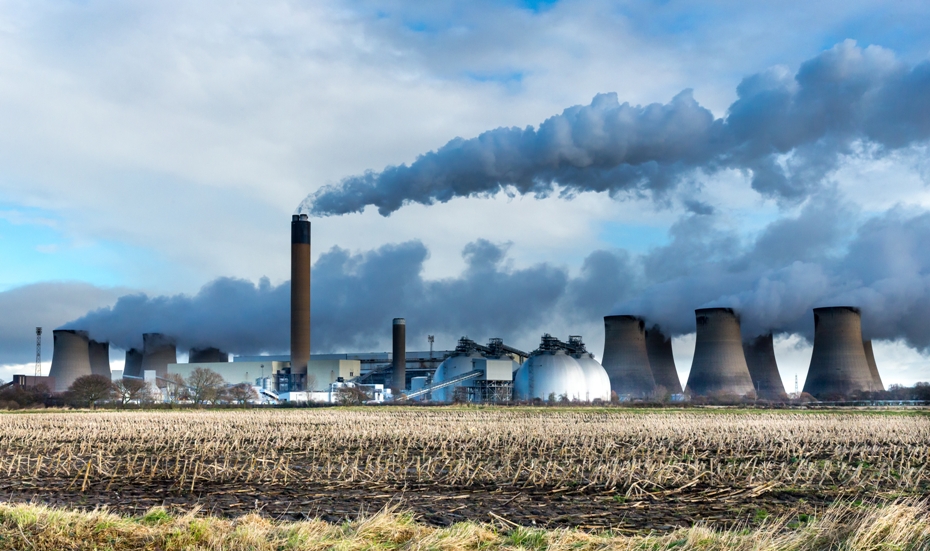In his monthly CSR Cheat Sheet column, Oliver Balch picks out some signs of progress amid the gloom of this month’s climate conference, including new corporate commitments and significant steps in the transport sector
Little by way of solid political outcomes emerged from the COP25 meeting in Madrid, with climate negotiators pushing back many of the hard decisions until next year’s critical meeting in Glasgow, including a decision on rules for carbon pricing in the Paris Agreement.
“There is no sugar-coating it: The negotiations fell far short of what was expected,” said Helen Mountford, vice president for climate and economics at the World Resources Institute, in a statement. “Instead of leading the charge for more ambition, most of the large emitters were missing in action or obstructive. This reflects how disconnected many national leaders are from the urgency of the science and the demands of their citizens. They need to wake up in 2020.”
Extinction Rebellion activists didn’t mince words, dumping a load of horse manure outside the COP25 venue, topped by a message to world leaders: “The horseshit stops here.”
Earlier in the week, young followers of Greta Thunberg took over and occupied the main stage and demanded world leaders commit to far more ambitious action to address the climate emergency.
According to a global study conducted by pollsters Ipsos MORI, two in five (41%) of 18 to 25-year-olds identify climate change as “one of the most important” issues facing the world. More than one in three (36%) put pollution in the same bracket. The study, commissioned by Amnesty international, involved 22,000 young Generation Z adults from 22 countries.
But not all policymakers were dragging their heels. In stark opposition to the US Senate, which voted down a proposed Green New Deal, the European Union unveiled its own ambitious green growth plan during COP25. The policy initiative, which remains at the proposal stage, would see the European trading bloc pass a “climate law” to legally commit its members to achieving net-zero emissions by 2050. The proposal recognises that a serious change in gear is required, with emissions down just 23% since 1990 (albeit with a 61% growth in the economy). European emissions will reduce by only 60% by mid-century if its present-day trajectory continues as it is, the 24-page proposal concedes.

Meanwhile, the newly constituted European Commission says it will increase the EU’s emissions reduction target to “at least” 50% by 2030 (up from 40%) by next summer. In a recent report, an independent campaign group calling itself the Green New Deal for Europe notes that President Roosevelt’s New Deal initiative was able to revert the “dust bowl” conditions of the US’s Southern Plains region back in the 1930s by planting 3bn trees and developing 800 natural parks, among other measures. A key determinant of success for the EU will be the appetite of its member states to reach into their pockets. Just achieving existing 2030 climate targets will require an additional €260bn per year, the EU’s own report states.
More hope in Madrid came from the US delegation. Not the official one, naturally (President Trump continued to express his contempt for the climate agenda, this time using Twitter to call on Greta Thunberg to “work on her anger management problem”). Instead, bringing a voice of can-do optimism to the COP25 was a coalition of US state governors, city mayors and business leaders. This unofficial yet powerful delegation claims that their own pursuit of “aggressive best-practice climate policies” could reduce US emissions by 37% (on 2005 levels) by 2030. (Current levels put them on a 25% trajectory).
Notably, this is without government support. Should the federal government reverse its anti-Paris Agreement stance and “re-engage” with global climate policy, the figure could jump by 12 percentage points to 49%. According to a 100-page report published by the America’s Pledge coalition, the alliance’s members represent around two-thirds of both the US economy (68% of GDP) and the population (65%). As importantly, 51% of all US emissions fall within their remit.
Airlines smell the coffee on climate action with deal on carbon credits

No delegate at the recent United Nations’ climate talks in Madrid can claim ignorance of the issues at stake. Ahead of the COP25 meeting, the European Parliament announced a climate emergency, while the UN secretary-general António Guterres talked of nature being angry. One industry that appeared to be listening was the aviation sector. In a deal facilitated by the International Chamber of Commerce, the industry’s leading players have agreed to an ambitious carbon credit scheme to reduce the carbon impact of flying.
The AirCarbon Exchange will operate in carbon credits that are compliant with the International Civil Aviation Organization’s Carbon Offset and Reduction Scheme for International Aviation, known as CORSIA. Over three-quarters (77%) of international air traffic will participate in the voluntary initiative, which is due to kick off in 2021. The carbon credit platform will operate using blockchain and is expected to generate more than $40bn for climate-related projects over 14 years.
In a separate side event organised by the International Air Transport Association (IATA), meanwhile, the industry lobby group claimed that per-passenger carbon emissions have halved since 1990. Much of the improvement is attributed to an average increased fuel efficiency rate of 2.3% per year for all airplanes since 2009. Biofuels are also helping, with more than 215,000 flights using some blend of low-carbon fuel over the last decade. By IATA’s own admission, however, biofuels currently only serve 0.1% of the energy needs of the aviation sector, which transports around 12 million people every day.
Biofuels also figure highly in the shipping industry’s climate ambitions. In a detailed report released during COP25, the Sustainable Shipping Initiative (SSI) described fuels derived from biomass (a feedstock for alcohol-based fuels such as ethanol and liquified bio-gas) as the “most technologically ready” option for decarbonising deep-sea shipping. Shipping currently accounts for up to 3%of global carbon dioxide emissions.
If the International Maritime Organization is to meet its goal of a 50% reduction (from a 2008 baseline) by 2050, it will require the world’s 50,000 or so merchant ships to switch away from carbon-intensive fuels such as heavy fuel oil and marine distillate oil. To do so, a ramping up of biofuel production will be necessary. According to SSI’s report, the potential global supply of energy from bio-feedstocks is projected to hit between 50-100 exajoules(an exajoule equals 1018 joules) by 2050. Energy demand for shipping alone is forecast to be anywhere between 26 to 60 exajoules by this same date, suggesting a major supply-demand imbalance could be on the cards. `
Both moves come as investors used the Madrid summit to warn of sluggish progress among global transport companies. According to figuresreleased by the investor-backed Transition Pathway Initiative, fewer than one fifth (19%) of the world’s largest 57 transport businesses have emission-reduction plans consistent with a 2C pathway. Shipping is a rare exception, with eight of the sector’s largest 13 companies (61%) aligned with the Paris Agreement target.
Conversely, only two of the world’s 22 major airlines can make the same boast (EasyJet and Wizz Air). Note: the research does not take account for carbon offsetting, a popular mechanism for balancing carbon budgets. Among car manufacturers, meanwhile, only two of the 22 companies studied (Daimler and Tesla) have Paris-aligned commitments. That said, two-fifths (40%) have carbon targets in line with those set by their respective national governments.
A separate studypicks up the theme, arguing that the global automotive industry must “rapidly shift gear” if it is to reach emission reduction goals set down in the Paris Agreement. In their assessment of 25 leading automakers, the disclosure specialist CDP and the World Benchmarking Alliance (WBA) reveal that low-carbon vehicles still represent a tiny portfolio of overall sales – less than 1% in the case of 16 of the carmakers analysed. In addition, only five of the auto manufacturers (Groupe PSA, Renault, Ford, Mazda and Nissan) are judged to have Paris-compliant carbon strategies.
According to the International Energy Agency, the transport sector accounts for over 24% of all fossil fuel-related emissions. Its overall contribution to greenhouse gases is around 14%, the Intergovernmental Panel on Climate Change finds.
Corporates step up into the policy void on climate

“A journey of a thousand miles begins with a single step.” The business-focused UN-backed Global Compact chose this well-known Chinese proverb as its rallying call for companies to commit to a 1.5C temperature rise target over the next 12 months. At COP25, it reported that 177 have already heeded the call, a huge increase on the 68 signatories at the campaign’s launch at the UN General Assembly in September.
The World Business Council for Sustainable Development, meanwhile, put 1.5C-oriented greenhouse gas emission strategies at the top of its list of seven immediate asks of the corporate sector.
The International Chambers of Commerce, which now has 2,100 chambers and affiliate organisations signed up to its commitment to keep global warming well below 2C, published an open letter to finance ministers on the eve of the talks the Madrid talks, setting out a 10-point plan to better align the governance of the financial system with the objectives of the 2015 Paris Agreement and the Sustainable Development Goals.
And this week the Prince of Wales's Accounting for Sustainability project issued a net-zero statement of support from the chief financial officers of 36 major companies. The statement commits the companies to doing one of the following: aligning with 1.5C emissions scenarios, setting and validating science-based targets, and publishing their company's net zero emissions pathway. It is signed by CFOs from companies including Mars, National Grid, SSE, Burberry, Anglian Water, Yorkshire Water, British Land, Heathrow Airport, Salesfoce, Royal DSM, Olam, and the Canadian cities of Vancouver and Toronto.
UK energy producer Drax was not among the CFO signatories, but it used the Madrid summit to set out its stall for becoming the world’s first carbon-negative company. The bold plan is based on the addition of carbon capture and storage technology to Drax’s existing bioenergy generation capacity.
Drax, which produces around 5% of the UK’s overall electricity needs, is currently piloting such an approach at its power station near Selby in North Yorkshire. If rolled out across all its biomass generating units, the power utility calculates it could capture up to 16m tonnes of carbon dioxide2 a year. Speaking at COP25, Drax’s chief executive Will Gardiner noted that his firm has converted two-thirds of its coal-fired power station to use sustainable biomass over recent years.
At present, Drax generates 12% of all the UK’s renewable electricity supply. Back in May, the UK Committee on Climate Change issued a report stating that biomass with carbon capture and storage could generate up to 173 terawatt hours of electricity by 2050, capturing up to 51 million tonnes of carbon dioxide – around half the required amount for the UK to become net-zero.
Other companies riding the COP wave include US apparel and footwear company VF. The global fashion brand used its latest sustainability report to lay out new science-based targets that will – if successful – see its direct and indirect emissions reduce by 30% (based on a 2017 baseline) by 2030. VF also took the opportunity to highlight recent environmental achievements, including the conversion of half of global distribution centres to zero-waste. US commodity trader Cargill came out with a similar commitment, pledging to cut its direct and indirect emission by 30% by 2030. In Cargill’s case, the target will be calculated on a per tonne of product basis. As with its previous operations goal to cut absolute emissions by 10%, the new announcement has the formal approval of the Science Based Targets initiative. Among the measures Cargill has lined up are a 25-year, $3.5m community forest project in West Kalimantan, Indonesia, and the continuation of a $30m fund to finance ideas for forest protection in South America.
Considerable work remains to be done, however. One area where global corporations could exert greater influence is encouraging the uptake of renewable energy by their direct suppliers. According to calculations by the London-based disclosure specialist CDP, more than one billion metric tonnes of greenhouse gas emissions could be saved if suppliers to just 125 multinationals increased their renewable electricity by 20 percentage points (the equivalent of Brazil and Mexico’s combined carbon footprint). At present, only 4% of the nearly 7,000 major suppliers analysed have renewable targets in place. Little wonder that they purchase only around one tenth (11%) of their energy needs from zero-carbon sources.
Supply chain emissions represent a major challenge for companies seeking to take climate change seriously, given that these typically exceed companies’ direct emissions by an order of 5.5. It is not only companies that should be worried, CDP notes. According to CDP’s analysis, the knock-on costs of climate change could rack up to $906bn. Aiding future conversations between buyers and suppliers, meanwhile, is a widespread acknowledgement (ie 95% of major procurers surveyed by CDP) that working with environmentally conscious suppliers is cost-competitive in the long run.

